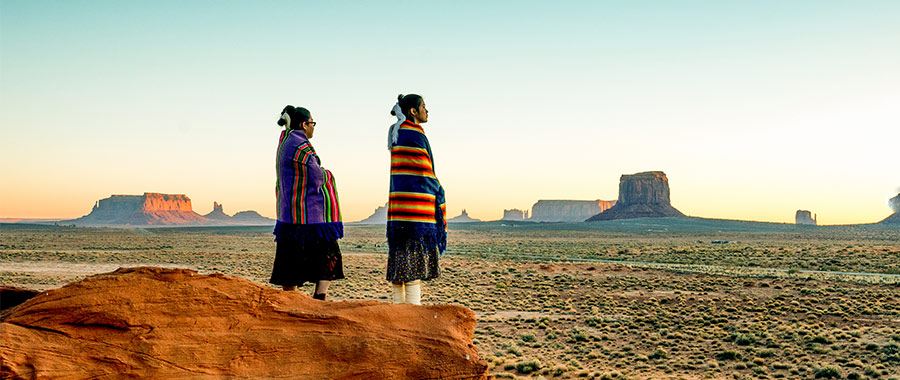In the realm of Bahá’í teachings, there exists a profound and intricate tapestry woven with respect for all messengers of God. One particularly salient aspect of this theology is the recognition and reverence extended towards Indigenous messengers. The primary inquiry that emerges from this discourse is: How can one truly embody the principles of respect and recognition prescribed by Bahá’í teachings while approaching the rich legacy of Indigenous spirituality? This question not only invites introspection, but also presents a potential challenge regarding the intersection of diverse cultural paradigms.
Bahá’í philosophy posits that all prophets and messengers of God are interconnected, contributing uniquely to the spiritual evolution of humanity. This interconnectedness invites believers to recognize the sacred contributions of Indigenous figures, such as Haile Selassie, Popé, and others, who have played vital roles in the advancement of human understanding and harmony. Acknowledging these figures does not merely serve to enrich the Bahá’í narrative; it also cultivates a deeper appreciation for the myriad expressions of faith and spirituality that have flourished across diverse cultures.
A foundational principle embedded within Bahá’í teachings is the inherent oneness of humanity. This concept demands an examination of biases that may exist within traditional religious frameworks. Indigenous messengers have often been marginalized in both historical and contemporary contexts. Thus, Bahá’ís are called to confront these biases and promote an inclusive worldview that recognizes the intrinsic value of Indigenous perspectives. Doing so enhances one’s spiritual journey and fosters unity among disparate belief systems.
Furthermore, the recognition of Indigenous messengers prompts a consideration of the unique challenges faced by Indigenous peoples, including colonization, cultural erasure, and systemic disenfranchisement. Historically, many Indigenous cultures have been viewed through a lens of deficiency rather than one of richness and depth. The Bahá’í community is called to oppose such narrative; instead, embracing the manifold teachings and traditions that Indigenous messengers have imparted to their communities. It requires intellectual humility to rectify one’s worldview and acknowledge the wisdom embedded within Indigenous spiritual practices.
When engaging with Indigenous teachings, how can Bahá’ís balance the teachings of their own faith with the traditions of Indigenous spirituality? This interplay is complex, requiring a thoughtful approach that transcends superficial engagement. Genuine interaction with Indigenous cultures involves listening. This encompasses not just passive hearing but also the active, conscious absorption of Indigenous stories, rituals, and philosophies. Such engagement necessitates an openness to learning and a willingness to embrace vulnerability, as it may challenge established beliefs.
Moreover, a critical aspect of recognizing Indigenous messengers lies in the acknowledgment of the historical and ongoing injustices faced by these communities. The Bahá’í teachings emphasize justice, and true adherence to these principles compels believers to advocate for the rights of marginalized populations. By engaging in dialogue, promoting representation, and supporting Indigenous-led initiatives, Bahá’ís can create pathways toward reconciliation and understanding.
Another vital point for consideration is the role of language in shaping perceptions and facilitating connections. Language reflects cultural values and worldviews. When discussing Indigenous messengers, using appropriate terminology that honors their identity and significance is paramount. Avoiding generalizations and stereotypes showcases respect and enhances credibility within interfaith dialogues.
Additionally, Bahá’í followers are urged to engage in self-reflection and self-examination in their pursuit of recognizing Indigenous contributions. What biases or assumptions might inhibit such recognition? This personal inquiry opens the door to transformative experiences that can enhance one’s understanding of both Bahá’í principles and Indigenous cosmologies. This process of introspection cultivates a greater awareness of the broader spiritual landscape and facilitates a more nuanced engagement with faith.
As one navigates the waters of recognizing Indigenous messengers, it is essential to promote collaborative relationships grounded in mutual respect and reciprocity. Developing partnerships with Indigenous communities based on shared values will not only enhance individual spiritual growth but also fortify collective endeavors toward a harmonious existence. This collaboration should ideally transcend mere tokenism to embody genuine solidarity, thereby fostering a space for Indigenous voices to flourish within the Bahá’í community.
In conclusion, the recognition and respect for Indigenous messengers of God within the Bahá’í context present both a profound opportunity for personal and communal growth, as well as a vital challenge to re-examine entrenched belief systems. Developing a true appreciation for these figures necessitates an unwavering commitment to justice, respect, engagement, and openness. Bahá’í teachings advocate for unity; thus, the integration of Indigenous perspectives can only serve to enrich this sacred journey. Ultimately, recognizing the divine attributes expressed through diverse messengers allows for a more expansive understanding of spirituality, transcending cultural boundaries and fostering a rich tapestry of human connection.
